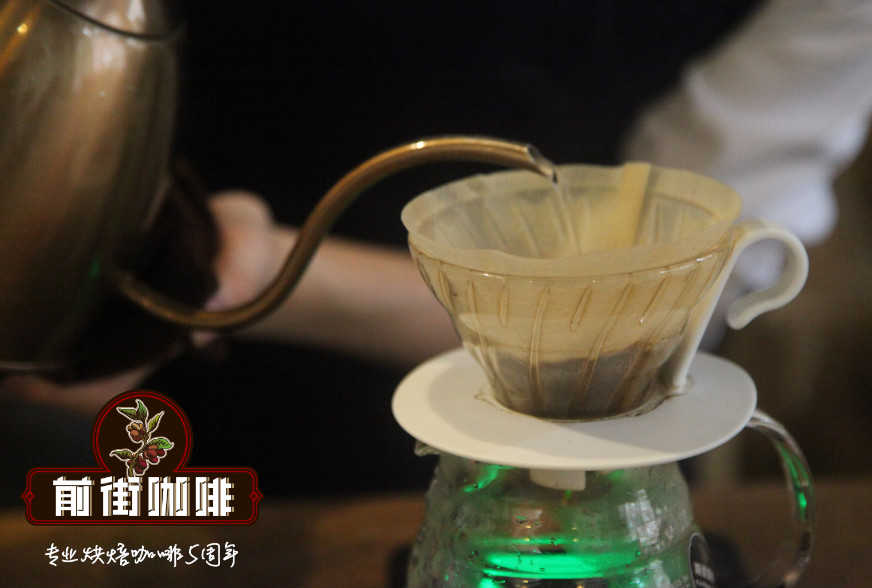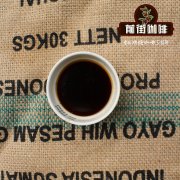What is Ethiopian Buna coffee? Introduction of Sidamo Hanggut Hunkute Coffee Cooperative

Professional coffee knowledge exchange more coffee bean information please follow the coffee workshop (Wechat official account cafe_style)
Ethiopia is the hometown of Arabica coffee, and you can see wild Arabica coffee in the forests of Ethiopia's Kaffa region. In Ethiopian, coffee is called "Bun" or "Buna". Coffee beans (coffeebean) may be translated from "Kaffa Bun". Arabica coffee has long been found in the Harald area, probably from the Kafa forest.
Ethiopian coffee is processed by sun and water washing. The flavor of coffee processed by different processing methods is very different. Generally speaking, the alcoholic thickness and soil taste of washed Sidamo, Yirgacheffe and Limmu coffee are slightly lower, and the taste of sun-processed coffee is more wild. But Essex coffee may taste different from batch to batch, which requires more cup tests in order to find really good coffee.
Hunkute is a cooperative of 2000 small coffee farmers located in the Sidamo region of southern Ethiopia. The elevation is the highest in the producing area, and there are two washing plants nearby, namely Hanggut No. 1 and Hanggut No. 2, located in the Dalle community of Sidamo. It has 270members and No. 1 field is 1850 meters above sea level. It was established 10 years ago, and Honggut No. 2 farm was established 2150 meters above sea level, established five years ago.
The two water washes collect cherries from nearby farmer members.
All the cooperatives in Ethiopia belong to a certain guild, and Hanggut belongs to the Sidamo Union guild, which can sell and export coffee. They will shell and grade before export. The characteristic of Hanggut is that they pursue not only quantity, but also quality.
Due to the lack of serious diseases and insect pests and lack of local funds, chemical and mineral fertilizers are not used locally, Ethiopian coffee is basically considered to be organically grown by default, and now the Hunkute Cooperative has been certified as an organic producer and has obtained Debio Norway,NO- Organic KO-01 certification.
Producing area: Sidamo, Guji
Altitude: 1900-2350m
Flavor description: sweet floral aroma, sweet citrus fudge, fine and bright acid value of lemon and grapefruit, accompanied by slightly black tea aroma, sweet and thick taste
END
Important Notice :
前街咖啡 FrontStreet Coffee has moved to new addredd:
FrontStreet Coffee Address: 315,Donghua East Road,GuangZhou
Tel:020 38364473
- Prev

Panamanian Don Patch Coffee Manor geisha Coffee flavor Panamanian Boquete Coffee area introduction
Professional coffee knowledge exchange more coffee bean information Please follow Coffee Workshop (Wechat official account cafe_style) Geisha is the most legendary variety in the coffee industry. Pinyin Geisha has caused a great controversy among coffee people in Europe and the United States. There are a lot of people in Gesha and Guixia, which are the same as the pronunciation and writing of Japanese literature and art, and have nothing to do with it, but just interesting. Speaking of the legend of a geisha, it turns out that this coffee bean originated in Africa.
- Next

Costa Rican black honey uses strawberry filter cup to brew and boil parameters full of strawberry aroma, strawberry filter cup characteristics
Professional coffee knowledge exchange more coffee bean information please follow the coffee workshop (Wechat official account cafe_style) Costa Rica is between Panama and Guatemala, a small country with a coffee history of about two hundred years. The advantages of geography and climate have brought good planting conditions to Costa Rica, combined with the special treatment popular in recent years, to produce sweet fruit-scented coffee.
Related
- Does Rose Summer choose Blue, Green or Red? Detailed explanation of Rose Summer Coffee plots and Classification in Panamanian Jade Manor
- What is the difference between the origin, producing area, processing plant, cooperative and manor of coffee beans?
- How fine does the espresso powder fit? how to grind the espresso?
- Sca coffee roasting degree color card coffee roasting degree 8 roasting color values what do you mean?
- The practice of lattes: how to make lattes at home
- Introduction to Indonesian Fine Coffee beans-- Java Coffee producing area of Indonesian Arabica Coffee
- How much will the flavor of light and medium roasted rose summer be expressed? What baking level is rose summer suitable for?
- Introduction to the characteristics of washing, sun-drying or wet-planing coffee commonly used in Mantenin, Indonesia
- Price characteristics of Arabica Coffee Bean Starbucks introduction to Manning Coffee Bean Taste producing area Variety Manor
- What is the authentic Yega flavor? What are the flavor characteristics of the really excellent Yejasuffi coffee beans?

